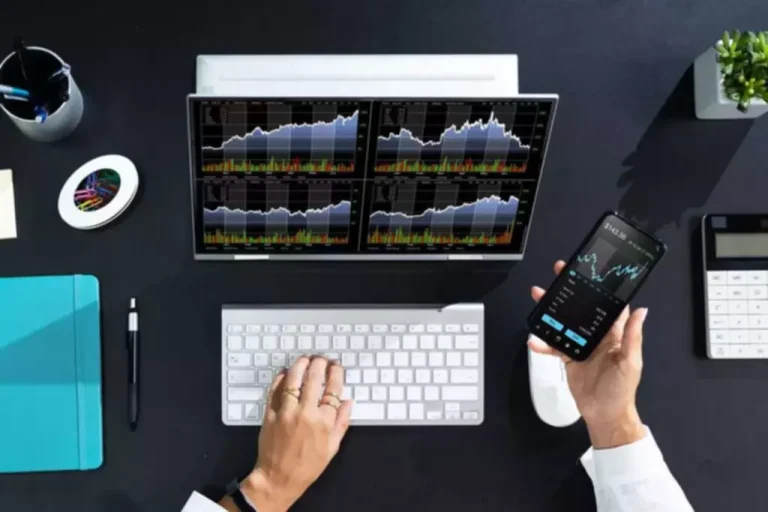These investments facilitate various innovations, research, and developments. By offering funds, traders guarantee job creation and infrastructure improvement. All the supporting aspects are important for total financial progress. Let’s explore the definition and characteristics of merchants, their roles within the financial markets, and the tools and applied sciences they make use of of their activities. People posting in online stock-picking boards and paying for ads touting sure-thing stocks aren’t your folks. That’s when shady people buy buckets of shares in a little-known, thinly traded firm and hype it up on the internet.
Full-service brokerages tend to charge larger buying and selling charges than on-line brokerages or robo-advisors. “Public corporations are a key a half of the American economy https://www.xcritical.com/,” states the U.S. Securities and Exchange Commission (SEC), an independent federal agency that regulates stock buying and selling.
Where Can You Buy And Promote Stock?
For instance, when a disaster spreads globally, currencies which would possibly be thought of to be secure havens (JPY, CHF) thrive as investors/traders search security. In return, when emerging nations in a region start to prosper, their currencies may respect as a result of buyers and merchants like new development alternatives. However, even in forex, there are traders preferring fundamentals, or both approaches are equal for them and have equal significance when deciding to enter a trade. In addition, we have a gaggle of speculators who try to revenue from short-term actions just after the publication of macroeconomic news.

The profit era is achieved by way of numerous approaches similar to basic, technical and quantitative analyses, which aid in figuring out market tendencies and alternatives. A dealer is an individual who engages in the buying and promoting of belongings in any financial market, both for themself or on behalf of one other trading and investing difference person or establishment. The main distinction between a trader and an investor is the duration for which the individual holds the asset. Investors are likely to have a longer-term time horizon, whereas traders tend to hold belongings for much shorter intervals to capitalize on short-term trends.
Definition And Characteristics Of A Dealer
You can commerce via spinoff merchandise like a CFD, which enable you to speculate on the value of an underlying asset rising or falling. To calculate your profit, you’d multiply the distinction between the closing value and opening price of your trade by its size. In this case, your revenue could be $145.50 ([$52.600 – $51.630] x 150), excluding any further costs.

Trading is a highly expert career that provides value discovery and liquidity in a mess of financial markets, including shares, bonds, currencies, commodities, or derivatives. Traders can either be entrepreneurs or work for investment banks, hedge funds, or proprietary buying and selling firms. Also, they use varied methods and tools to search for alternatives in addition to to take benefit of market inefficiencies or mispricing.
Virtual trading with stock market simulators lets prospects check their trading skills and build up a track document earlier than placing actual dollars on the line. Day trading means playing scorching potato with stocks — buying and selling the same stock in a single buying and selling day. Day merchants care little concerning the inside workings of the businesses.
What’s The Function Of An Funding Bank?
NerdWallet has reviewed and ranked on-line inventory brokers based on which of them are greatest for novices. This list takes into consideration the inventory broker’s investment selection, buyer assist, account charges, account minimum, trading costs and more. But before you dive in, you must make certain you know how the inventory market works.

Traders purchase and sell extra frequently, while traders sometimes purchase and maintain for the lengthy run. But unlike merchants, investors typically do not have a particular plan to exit the inventory at a specific worth. For investors, risk administration is a function of choosing the right funding within the first place. Price fluctuations are simply a suitable a part of a stock’s life. And if the stock worth does drop, buyers are inclined to imagine that it’ll go back up over the lengthy haul. When you wish to buy and promote shares, you can choose to use the services of a monetary advisor or handle it on your own via a web-based brokerage or a buying and selling app.
The hope is that the market value rises over the lengthy term so that they will profit by way of distinction in value. Investors might also earn earnings within the type of dividends (in the case of stocks) if the company grants them. Trading is the buying and promoting of economic instruments so as to make a revenue. These devices vary from quite so much of assets that are assigned a financial worth that can go up or down – and you’ll commerce on the direction they’ll take.

The stock market is made up of exchanges, such because the New York Stock Exchange and the Nasdaq. The main difference between a dealer and an investor is that merchants focus on short-term features whereas traders concentrate on long-term positive aspects. Traders are more involved with worth actions whereas traders are concerned with market and firm fundamentals. Companies that rent traders generally provide worker training applications that target the business and the particular types of belongings offered by the agency. Earning a task as a trader within the monetary markets can contain a big amount of preparation, including schooling, coaching, and licensing. Most entry-level trading jobs require no much less than a bachelor’s diploma, with employers typically in search of graduates who have majored in enterprise, economics, and accounting.
Their colleagues, purchasers, bosses, and other stakeholders must quickly and effectively understand what their dealer is saying so that they can make informed decisions. Trading is an intense profession, and traders need to effectively handle their feelings in a extremely annoying surroundings. Traders play a critical position in providing liquidity to monetary markets.
The time worth, additionally known as theta, of an option also decays in a non-linear manner. While these differences are typically true, there may be variations and overlaps within the strategies individuals use. Some merchants might have a longer-term strategy, and some investors intend to engage in shorter-term practices. Everyone has distinctive techniques and preferences that don’t essentially align with both category. Investors support economic development by allocating capital to companies and initiatives.
- Since the aim is to develop a retirement account over decades, the day-to-day fluctuations of different mutual funds are much less important than consistent progress over an prolonged interval.
- That’s as a end result of merchants monitor the markets persistently for changes in asset prices before making their strikes.
- Both buyers and traders search profits via market participation.
- Unlike scalpers and day traders, swing merchants maintain their positions for longer time periods.
- The stereotypical image of a trader may be the frenetic flooring trader, yelling orders across the trading pit, sleeves rolled up.
- If a severe investor is unable to outperform the benchmark (something even pro buyers struggle to do), then it makes sense to invest in a low-cost index mutual fund or ETF.
Most people who trade on their own account do business from home or in a small workplace, they usually typically use a discount broker and digital buying and selling platforms. Their limits are dependent on their very own money and credit, however they may typically hold all earnings. They should continuously monitor their current and potential positions to make certain that the dangers they take are optimal. Traders must effectively use their stop-loss and limit orders to keep up profitability and margins. Trading is well-suited to people who have a great grasp of the markets and the way they work.
Active buying and selling is when an investor who places 10 or extra trades per 30 days. They typically use strategies that rely closely on timing the market. They attempt to reap the benefits of short-term events (at the corporate or in the market) to show a short-term profit.
The index saw a massive recovery in 2023 and hit a fresh all-time excessive in Jan. 2024. A market index tracks the performance of a gaggle of stocks, which either represents the market as a whole or a particular sector of the market, like expertise or retail companies. You’re prone to hear most about the S&P 500, the Nasdaq composite and the Dow Jones Industrial Average; they’re usually used as proxies for the performance of the overall market.
The difference between buying and selling and investing lies in the means of constructing a profit and whether or not you’re taking possession of the asset. Traders make income from buying low and promoting excessive (going long) or selling high and shopping for low (going short), often over the short or medium time period. Since the dealer would solely be speculating in the marketplace price’s future motion, be it bullish or bearish, they wouldn’t acquire ownership of the underlying asset. Clearly, both traders and traders are needed to guarantee that a market to operate properly. Without traders, investors would have no liquidity by way of which to purchase and promote shares. Without investors, traders would have no foundation from which to buy and promote.
